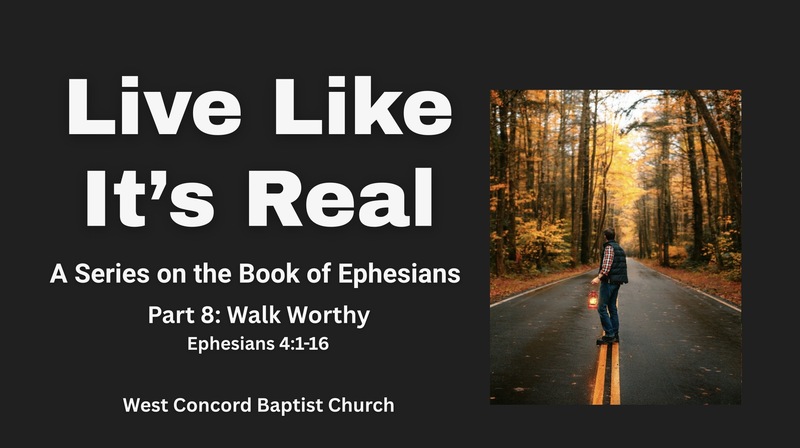
Ephesians 4:1-16
Gracious Unity (vv. 1-6)
A worthy walk
Loneliness
Gentleness
Patience
Endurance
A unified work
One body
One Spirit
One hope
One Lord
One faith
One baptism
One God
Gifted Diversity (vv. 7-16)
Gifted people
Apostles
Prophets
Evangelists
Pastors/teachers
Gifting purpose
Unified knowledge
Stabilized maturity
Integrated growth
More To Consider
All of Paul’s letters contain a beautiful balance between doctrine and duty, and Ephesians is the perfect example. The first three chapters deal with doctrine, our riches in Christ, while the last three chapters explain duty, our responsibilities in Christ. The key word in this last half of the book is walk (Eph. 4:1, 17; 5:2, 8, 15), while the key idea in the first half is wealth. In these last three chapters, Paul admonishes us to walk in unity (Eph. 4:1–16), purity (Eph. 4:17–5:17), harmony (Eph. 5:18–6:9), and victory (Eph. 6:10–24).
Wiersbe, W. W. (1996). The Bible exposition commentary (Vol. 2, p. 34). Victor Books.
Attitudes of humility, gentleness, and patience foster unity among Christians. Having stated these three virtues, Paul then stated the manner in which they are to be carried out in one’s conduct: bearing with one another in love and making every effort (the Gr. has a, “making every diligent effort”) to keep the unity of the Spirit through the bond of peace. Christians are not to make unity but to keep or guard what God made in creating the “one new man” (Eph. 2:15–16). They are to keep this unity “through the bond” which consists of “peace.” Concern for peace will mean that Christians will lovingly tolerate each other, even when they have differences. Hoehner, H. W. (1985). Ephesians. In J. F. Walvoord & R. B. Zuck (Eds.), The Bible Knowledge Commentary: An Exposition of the Scriptures (Vol. 2, p. 633). Victor Books.
"The society into which the Christian is called is not a collective but a Body. It is in fact that Body of which the family unit is an image on the natural level. "If anyone came to it with the misconception that the Church was a massing together of persons as if they were pennies or chips, he would be corrected at the threshold by the discovery that the Head of this Body is utterly unlike its inferior members -- they share no divinity with Him except by analogy. "We are summoned at the outset to combine as creatures with our Creator, as mortals with immortal, as redeemed sinners with sinless Redeemer. "His presence, the interaction between Him and us, must always be the overwhelmingly dominant factor in the life we are to lead within the body; and any conception of Christian fellowship which does not mean primarily fellowship with Him is out of order." From Transposition and Other Addresses; used by permission of William Collins Sons and Co., Ltd., in Daily Walk, May 18, 1992.

